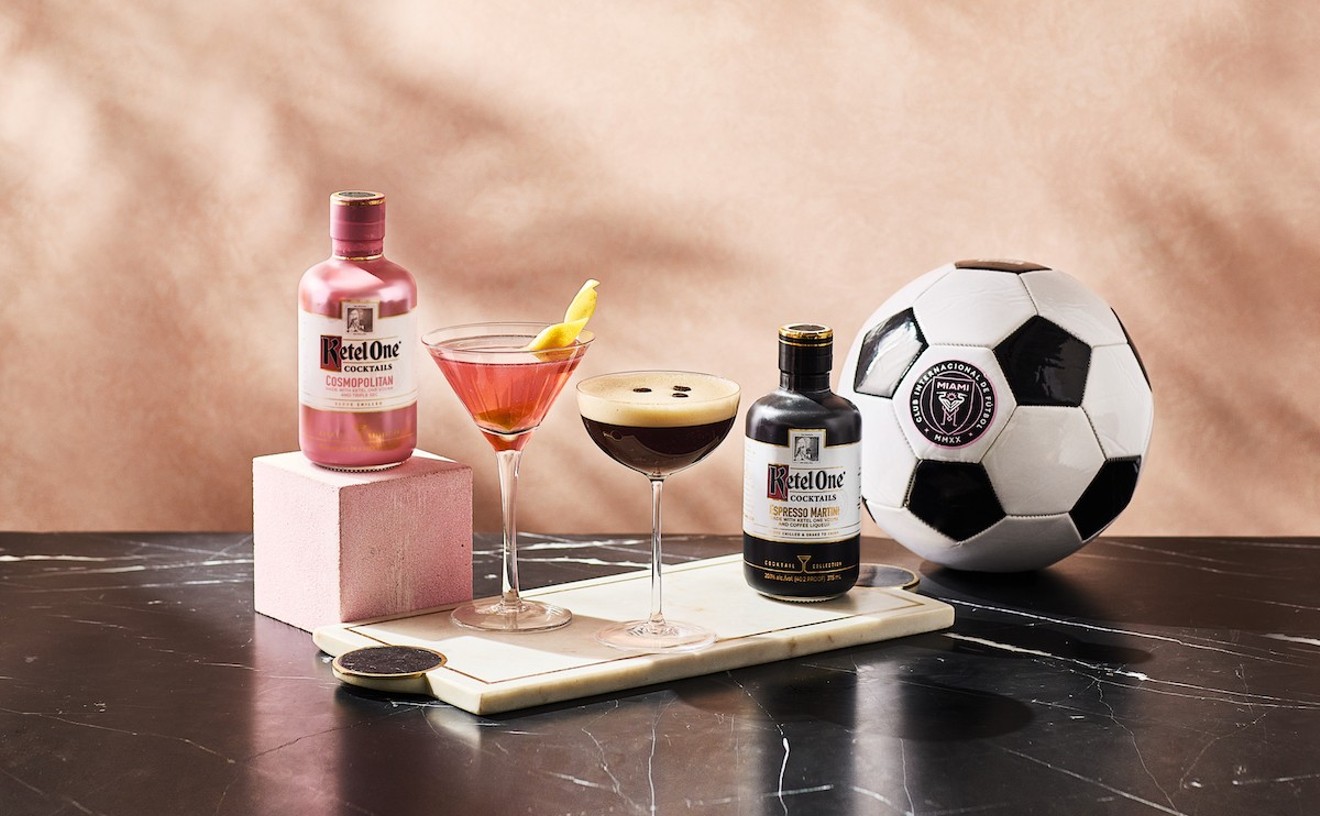Every man and his dog has some kind of at home hangover remedy: greasy food, bananas, coffee, ceviche, aspirin, whatever. Some actually help. Others ease the pain. The rest do nothing.
Whatever the case, we've decided to look up some of the weirder options. Hopefully, you won't have to test them out. But, who knows, maybe you can find an unsuspecting victim on whom you can experiment New Year's Day. Nice? No. Highly entertaining? Definitely, yes.
See Also:
- Cirque- A- Licious Offers High-Flying New Year's Eve
- South Florida New Year's Eve 2013 Dinners: Fort Lauderdale, Boca Raton, Delray Beach, and Beyond
- Virginia Philips Talks Palm Beach Food & Wine Festival and How to Saber a Bottle of Champagne Without Hurting Yourself
Lutefisk (Norway)
If there is one thing Norway is known for--besides Vikings--it's a pension for drinking. Come to think of it, the Vikings were also known for throwing them back. So with such a long history of drinking, the Norwegians have managed to come up with a hangover trick or two. The most disgusting: Lutefisk. Lutefisk is essentially a dried fish and lye. Through the ridiculously long cooking and curing period, the fish takes on a gelatinous consistency. Jelly-like fish? Sounds delicious. While it is also known as a popular holiday meal, the Norwegians also claim it is the perfect morning remedy for a hangover. Well, it might help you spew up the rest of the booze.
Haejangguk (Korea)
Aside from crazy matching couples outfits, super advanced technology, and a million expats teaching English, Korea is best known for its resident's ability to consume massive amounts of alcohol. And good food. So it comes as no surprise that a nation known for spicy food and drinking would have some interesting hangover cures up its sleeve. Haejangguk translates to "soup to cure a hangover" or "soup to get sober." It generally consists of cabbage, ox blood, and vegetables in a beef broth--it slightly varies in each region, but the overall idea is the same. Does it work? Who knows, but the idea of ox blood in the morning: sounds oh so pleasing to the American palate.
Pickle Juice (Poland)
Ever heard of Polish vodka? Yeah, we thought so. When a country is best known for some sort of liquor, its inhabitants usually like to consume it. Hey, it's called keeping it local. Knowing the Poles' adroitness for making and consuming vodka, we figured they would have some special hangover remedies. Turns out pickle juice does the trick--or so it is said. Whether is be from pickled vegetables or pickled fish, the Poles believe the electrolytes in the sour liquid help to hydrate better than water. We've heard fermented foods have magical health powers--who knew curing a hangover could be one.
Prairie Oyster Cocktail (U.S.)
You know it: Americans like to drink. We're the country of The Hangover, Old School, beer pong, football, and countless other binge-drinking games, movies, and activities. As much as modern day Americans like to put them down, many of our historical figures could do it even harder. With such a ripe history of innovation, of course, we would have some ingenous hangover cures. While the exact whereabouts may be unclear--someone probably drank the memory away--the Prairie Oyster Cocktail is most certainly American. The combination of raw egg, worcestershire, salt, pepper, and tabasco is said to do something to remedy a night of heavy frat-party-like drinking. Counteract the effects with salmonella poisoning? Maybe.
Leche de Tigre (Peru)
We know there's a longstanding debate about the Pisco's true country of origin, but we're going with Peru. That being said, the inhabitants of Pisco's country definitely like to enjoy a Pisco Sour or two. Maybe a bottle. Whatever. Point being, it's sweet and potent--a recipe for hangover disaster. How would one combat the aftereffects of the national cocktail? With the remnants of the national dish, of course. Leche de tigre (milk of the tiger) is the runoff juice left from ceviche: a combination of fish juice, lime juice, onion, chiles, salt, and pepper. We don't know how fishy marinade came to be known as tiger's milk, but the liquid is also said to be an aphrodisiac. Either way, we doubt it will make you feel better. Or sexier.
Follow @ CleanPlateBPB










